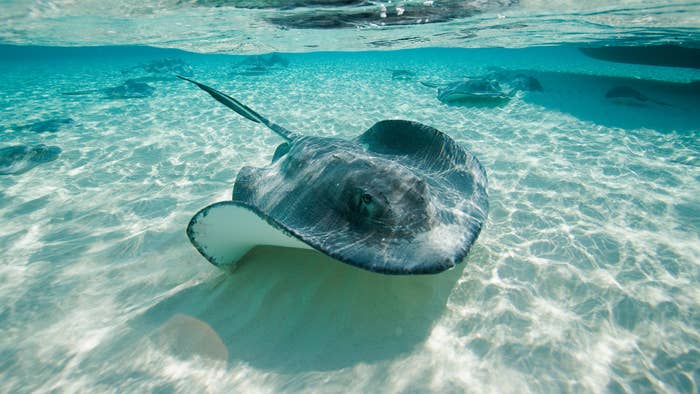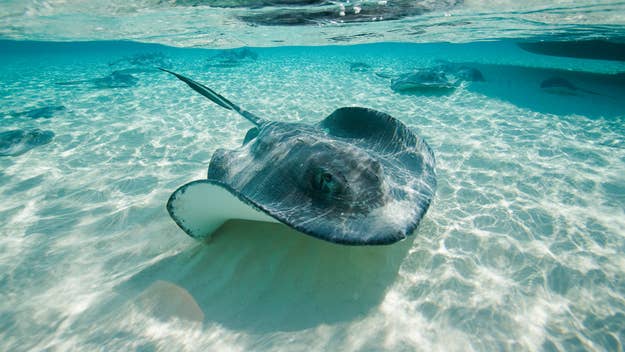
Employees at an aquarium in North Carolina were recently left baffled over how a female stingray got pregnant and wondered whether the shark she shares a tank with has anything to do with it.
As reported by CBS News earlier this month, the Aquarium and Shark Lab in Hendersonville spoke about the pregnancy of the stingray, who is named Charlotte, in a Facebook livestream. They explained that her pregnancy remains a mystery to them because she hasn't been with a male stingray in about eight years. Even stranger, she was found with multiple shark bites, which could indicate shark mating.
"The unique thing about Charlotte is we do not have a male ray," said Team ECCO founder and executive director Brenda Ramer. Charlotte, who is believed to be somewhere between 12 and 16 years old, is pregnant with three to four pups. She's been living in a tank with two male sharks, which would explain the shark bites. "The unique thing about Charlotte is we do not have a male ray," Ramer added. "There is a potential she mated with one of these young male sharks."
While the news sparked speculation that one of the sharks was the father, Georgia Aquarium research scientist Kady Lyons insists it's not possible. In an interview with the Associated Press, she explained that they aren't dealing with "some shark-ray shenanigans," but a possible case of parthenogenesis.
"Pretty confident that this is parthenogenesis .... and parthenogenesis literally translates into virgin birth or miracle birth," said Lyons, echoing the sentiment of the employees at the Aquarium and Shark Lab in Hendersonville. "It is very rare to happen." Essentially, parthenogenesis is asexual reproduction that happens when cells from the mother's eggs are created and merge with an egg. This can result in similar pups, but not clones.
The aquarium initially described the pregnancy as a "once in a lifetime science mystery," but a shark can't impregnate a stingray. "I give the shark the same odds of being the father that I would give Elvis or Bigfoot of being the father—zero," said Demian Chapman, senior scientist and Mote Marine Laboratory and Aqurium's center for shark research, in an interview with Forbes.
California State University's shark lab director Chris Lowe added, "We know that many species of sharks and rays are capable of parthenogenesis (where a female [can] produce an offspring clone without mating with a male). This is a very interesting phenomenon and quite cool considering it occurs across so many species of sharks and rays, but we don’t really know why this is so common across this group of animals and not others."
Charlotte is due to give birth later this month.

